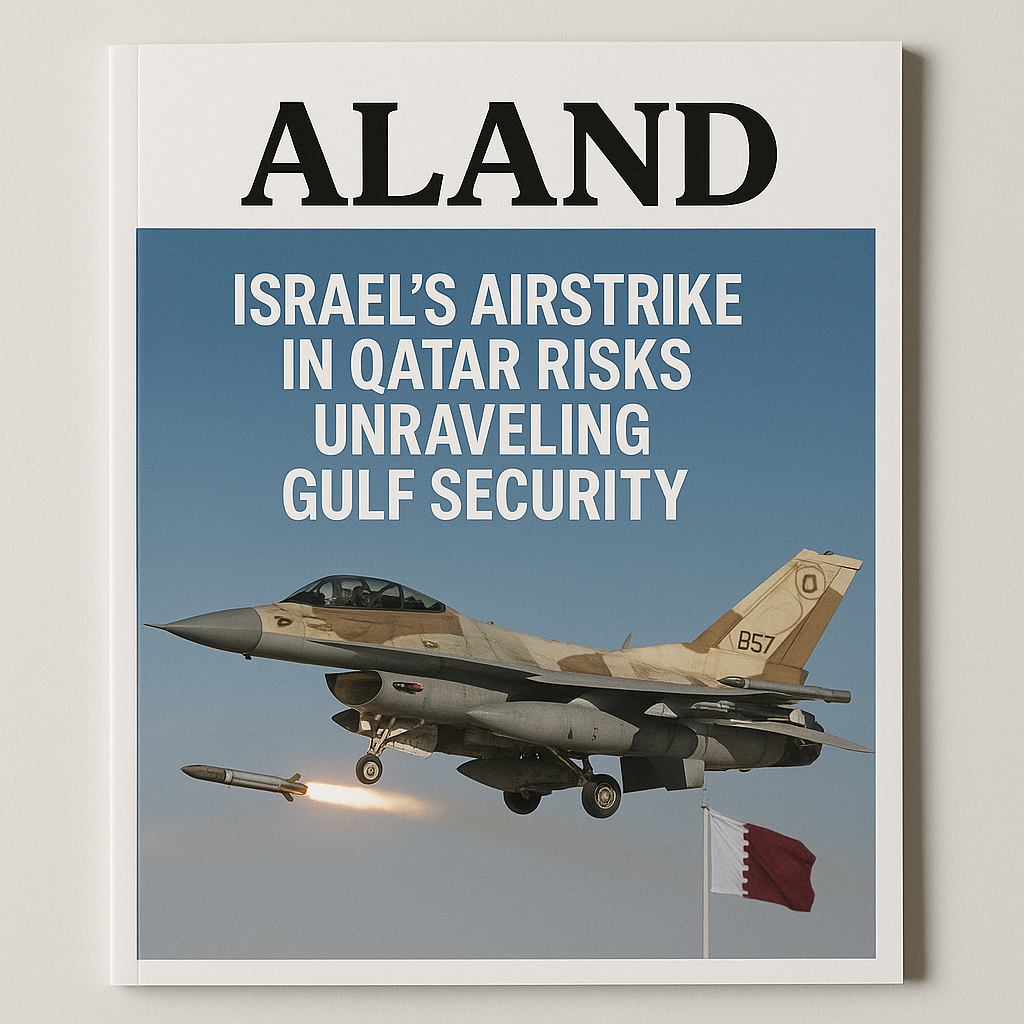Israel’s Airstrike in Qatar Risks Unraveling Gulf Security
Published Date: 15th Sep, 2025
Doha / Washington / Gulf States, September 15, 2025 — An Israeli airstrike on Doha has triggered a wave of alarm across the Gulf, sparking questions about the reliability of existing security guarantees and the very future of regional stability.
What happened
On September 9, 2025, Israel carried out a precision airstrike in Doha, Qatar, targeting a gathering of Hamas political figures who were reportedly convening to consider a U.S.-brokered ceasefire proposal in the Gaza war. While Israel justified the strike as a counter-terrorism measure, several Hamas members were killed along with a Qatari security officer and multiple guards. Senior Hamas leaders survived.
Qatar condemned the strike as a violation of its sovereignty and an affront to international norms. The country’s leadership said it reserved the right to respond, calling the episode a watershed moment that challenged assumptions about what was permissible in the region.
Reactions and regional fallout
The attack has triggered strong diplomatic condemnation across the Gulf and beyond. Many leaders described it as crossing a red line: striking a Gulf Cooperation Council (GCC) country engaged in mediation.
-
Qatar has called for a collective response from Gulf nations, warning that the entire region is at risk.
-
Some Gulf states are questioning the credibility of U.S. security guarantees, pointing out that a country hosting a major American base was still vulnerable to direct attack.
-
The strike has complicated ceasefire talks, as the meeting targeted was part of ongoing mediation efforts. Analysts warn this could derail diplomacy and escalate conflict further.
Implications for Gulf security
This incident is reshaping regional security thinking in several ways:
-
Erosion of Sovereignty Assumptions
Gulf states long believed their sovereignty and safety were assured. The Doha strike suggests those boundaries can now be crossed. -
Strains in Alliances
U.S. partners in the region are openly voicing concern that existing defense agreements may not be sufficient. Some leaders are calling for greater regional self-reliance. -
Risk to Normalization Efforts
Warming ties between Israel and some Arab states may now cool, with normalization agreements potentially stalled or reversed. -
Escalation Pressure
Calls for a coordinated Gulf response, including diplomatic and possibly security-based measures, are gaining traction. Whether these lead to concrete action remains uncertain.
What to watch
-
Gulf unity: Whether regional states present a coordinated front or act individually.
-
Ceasefire talks: If Qatar can still serve as a credible mediator, or if negotiations shift elsewhere.
-
U.S. credibility: How Washington reassures its partners and whether its security commitments are reaffirmed or doubted.
-
Future strikes: Whether this incident becomes an isolated flashpoint or the beginning of a new phase in regional conflict.
Bottom line: The Israeli airstrike in Qatar has gone beyond a tactical operation. It has shaken long-standing assumptions about security, sovereignty, and mediation in the Gulf. Unless managed carefully, this may become a turning point that redraws the lines of diplomacy, alliances, and power in the region.
Date: 15th Sep, 2025

